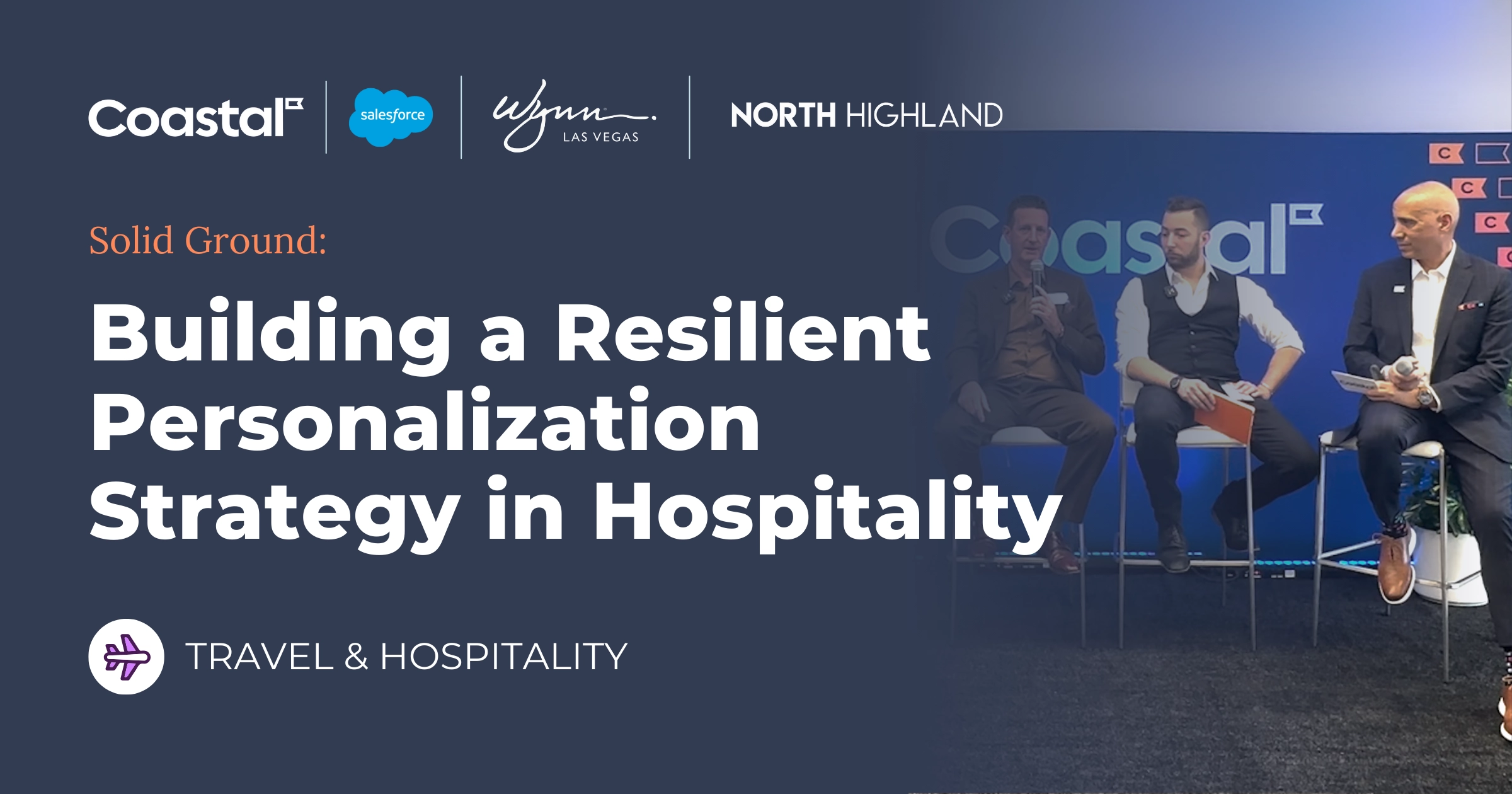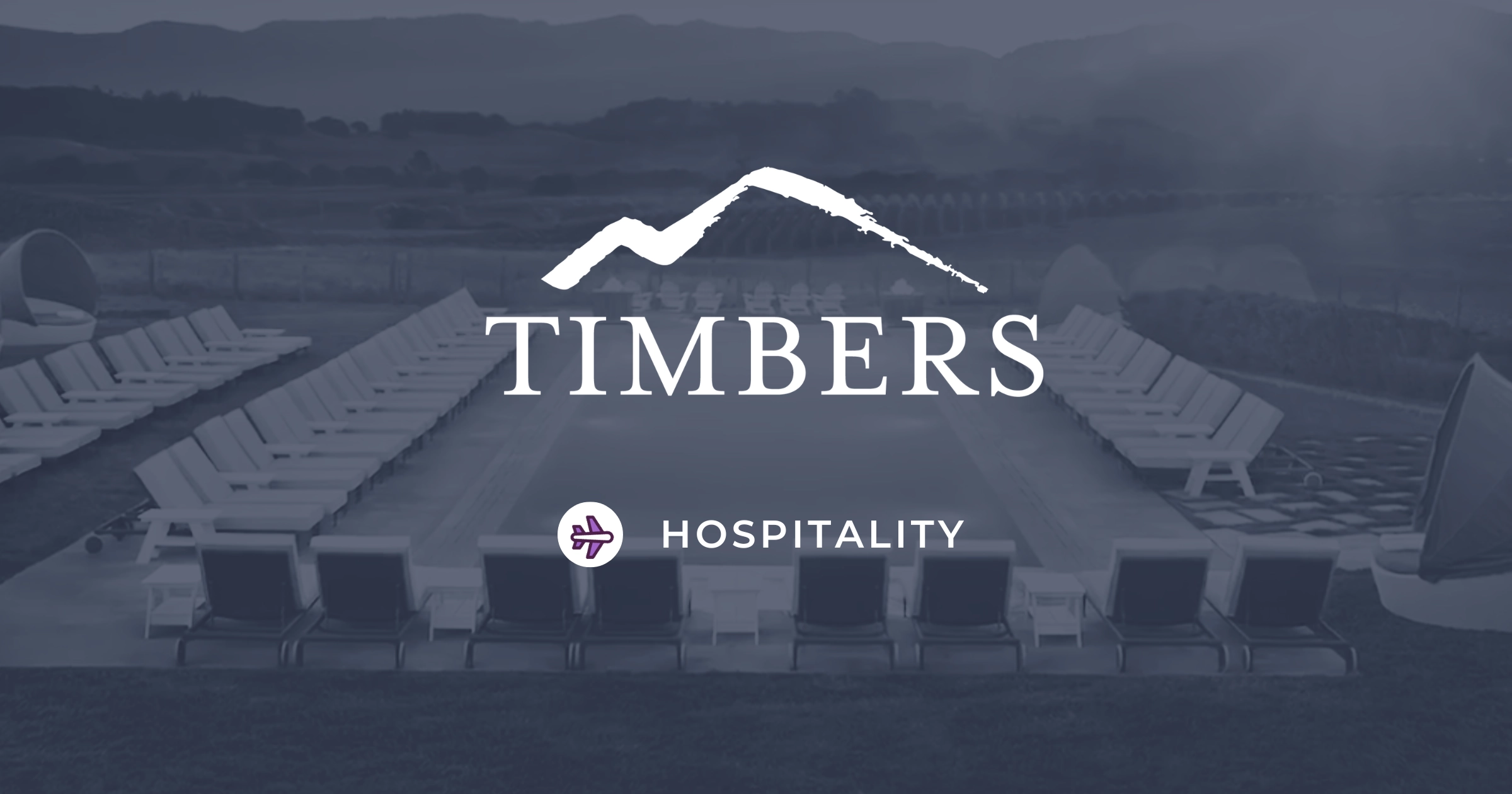Your casino has spent millions crafting a luxury experience.
Premium rooms. High-end restaurants. Exclusive gaming areas.
And still, guests bounce between properties.
Why? Because luxury isn’t rare anymore. It’s expected.
What sets winning casinos apart isn’t marble bathrooms—it’s the feeling guests get when they walk through your doors. That sense that you know them. That you value them. That the VIP treatment in your marketing isn’t just a tagline.
And yet, despite mountains of guest data, many guests receive a luxury experience with a surprisingly generic aftertaste.
When Data Isn’t Loyalty
Your loyalty program was supposed to fix this.
You’ve got the data. Guests swipe. You track. Points pile up. Offers go out.
But when that same guest walks through your doors, the system goes quiet. No greeting. No context. Just a room number and a credit card.
They notice. Because when someone who plays often, stays often, and spends big gets treated like a stranger, the message is clear: this place doesn’t really know me.
And that’s when loyalty slips. Not because the comps aren’t good—but because the connection isn’t.
The problem isn’t a lack of data. It’s that none of it reaches the people who need it.
Your systems know everything: play history, stay patterns, dining preferences, loyalty tier. But your staff—whether they’re at the front desk, on the casino floor, or managing a dining comp—are stuck toggling between 20+ disconnected platforms, chasing details that should’ve been at their fingertips.
While they search for the right screen, the moment passes.
And attention—the most valuable resource you have—is spent navigating systems instead of delivering hospitality.
The One Advantage You Can’t Fake
Your competitors can match your rooms. Copy your comps. Mimic your menus.
But they can’t replicate relationships.
They can’t manufacture the front desk agent who remembers a guest’s name, their preferred suite, and that they like to dine at the steakhouse on their first night: “Welcome back, Mr. Chen. Shall I reserve your usual table at 8?”
Or the slot attendant who sees a familiar face at video poker and walks over with their go-to drink—an old fashioned, extra cherry—before they even ask.
These aren’t transactions. They’re moments of recognition. Emotional glue.
They’re what turn occasional guests into regulars. And in a market where everything else can be duplicated, that feeling of being truly known is the one thing no competitor can copy.
Casino Tech Strategy: Who’s Winning the Guest Experience Game?
Casino operators are taking three main approaches to the guest experience challenge:
Status Quo Operators are sticking with disconnected systems and over-relying on staff training to fill the gaps. But as guest expectations rise, that approach is showing its limitations.
Big Tech Investors are all-in on full system overhauls—ripping and replacing legacy platforms with enterprise-wide tools. These eight-figure projects sound bold but often get bogged down by complexity, disruption, and a mismatch with how casinos actually operate.
Experience Integrators are playing it smarter. Instead of replacing everything, they’re connecting what already works. They unify guest data across systems and give staff the context they need—without the chaos of a wholesale tech replacement.
The gap between these groups is growing fast. Status quo operators are losing loyalty. Experience Integrators are seeing more return visits—and bigger spend from their most valuable players.
Why Most Integration Projects Miss the Mark
Too often, integration efforts stall when they hit the complexity of legacy systems and the challenge of connecting with property management systems (PMS).
Three approaches keep showing up—and falling short:
The “One System to Rule Them All” Fantasy
The idea is seductive. But standardizing on one platform means long timelines, high costs, and tools that weren’t built for the nuances of casino operations.
The Custom Integration Maze
Point-to-point connections between systems sound flexible… until you’re buried in brittle code and breakages every time something updates.
The Reporting-Only Trap
Sure, data warehouses are useful for analysis. But they don’t help your front desk agent in the moment that matters—when a VIP is standing right there.
What you need isn’t a rip-and-replace project. It’s a connective layer—one that pulls your systems together and puts unified guest insights directly into your team’s hands.
Unified Guest Profiles: How Salesforce Connects Casino Systems Without Replacing Them
Salesforce offers a fundamentally different approach for casino operators.
Instead of replacing the specialized systems that run your business, Salesforce creates an integrated layer that connects your existing gaming systems, reservation systems, F&B platforms, and loyalty programs, giving your team the complete guest view they’ve been missing.
Data Cloud: One Profile, All Systems
With Audience Builder being phased out, Data Cloud brings your guest data together—from CRM and marketing to analytics and operations. You get a single profile that includes every relevant touchpoint, all in one place.
Service Cloud: Real-Time Insights at Every Touchpoint
Whether it’s the valet, the front desk, or the casino floor, Service Cloud makes sure staff know exactly who they’re helping. They’ll see if it’s an anniversary trip, a VIP visit, or a guest coming off a rough stay—and know how to respond in the moment.
Agentforce: Automated Guest Experience
Coastal’s Agentforce solutions turn guest data—integrated from Salesforce and external systems via MuleSoft—into real-time actions. Staff get alerts when a high-value player arrives, departments stay in sync when issues are reported, and personalized touches are queued for special occasions. With faster guest registration, smarter room assignments, and proactive service based on past behavior, every interaction feels effortless and personal.
A Smarter Path to Personalized Gaming Experiences
The most successful operators don’t boil the ocean. They start with a focused, strategic framework:
Phase 1: Find the Moments That Matter
Start by mapping out the guest journey. Pinpoint the highest-impact opportunities:
- When something goes wrong (and needs to be made right)
- When a guest arrives and should be recognized
- When milestones deserve a moment of celebration
Phase 2: Prioritize by Value
Not all moments are equal. Prioritize based on:
- Revenue potential: Will it drive more spend?
- Loyalty impact: Will it make someone come back?
- Complexity: Can it be implemented quickly?
Phase 3: Connect What You Need (Not Everything)
Focus on essential data only. Avoid sprawling projects that try to unify every dataset upfront. Small, connected wins lead to big loyalty gains.
Most casinos start with:
- Fixing service recovery so guests don’t have to repeat themselves
- Connecting gaming value to F&B so service feels intuitive
- Personalizing check-in so the guest experience starts strong
Why Unified Data Pays Off Beyond the Casino Floor
Yes, better guest experiences are the goal. But the benefits ripple across the business:
Workforce Productivity
When staff stop navigating systems and start connecting with guests, service improves—and so does efficiency. Simplifying access to information frees up time for what matters most: the guest.
Stronger Collaboration
When marketing, hotel ops, and the casino floor work from the same guest profile, cross-functional decisions become faster and more aligned. Less friction. More follow-through.
Future-Ready Operations
Once your data is connected, layering on AI and automation gets a whole lot easier. You’re not playing catch-up—you’re positioned to lead.
Ready or Not: Why 2025 Will Reshape the Casino Guest Experience
Marketing tools are changing. Guest systems are evolving. And those updates? They’re happening with or without you.
For forward-thinking operators, this is the moment to make the shift not only to new tools but also to a smarter strategy that finally solves the fragmentation problem.
Because fragmentation doesn’t just slow down staff—it creates revenue leakage, from missed cross-sell opportunities to preventable service gaps.
At Coastal, we’ve helped leading casinos connect the dots without ripping up what already works. We speak casino. We speak tech. And we’re here to help you turn your systems into your strongest competitive advantage.
In a world where everyone offers the same perks, the only edge that can’t be copied is knowing your guests better than anyone else—and showing it.



